Jeep Compass vs VW ID.3 – Differences & prices compared
Compare performance, boot space, consumption and price in one view.
Find out now: which car is the better choice for you – Jeep Compass or VW ID.3?
The Jeep Compass (SUV) comes with a Petrol MHEV, Plugin Hybrid or Electric engine and Automatic transmission. In comparison, the VW ID.3 (Hatchback) features a Electric engine with Automatic transmission.
When it comes to boot capacity, the Jeep Compass offers 550 L, while the VW ID.3 provides 385 L – depending on how much space you need. If you’re looking for more power, decide whether the 240 HP of the Jeep Compass or the 326 HP of the VW ID.3 suits your needs better.
In terms of consumption, the values are 17.50 kWh2 L per 100 km for the Jeep Compass, and 14.50 kWh for the VW ID.3.
Price-wise, the Jeep Compass starts at 34200 £, while the VW ID.3 is available from 28600 £. Compare all the details and find out which model fits your lifestyle best!
Jeep Compass
The Jeep Compass combines a rugged aesthetic with modern sophistication, making it a standout choice in the compact SUV segment. Its robust design is complemented by a comfortable interior that offers ample space and cutting-edge technology for a seamless driving experience. Whether tackling urban environments or venturing off-road, the Compass provides versatility and reliability, embodying the adventurous spirit synonymous with the Jeep brand.
details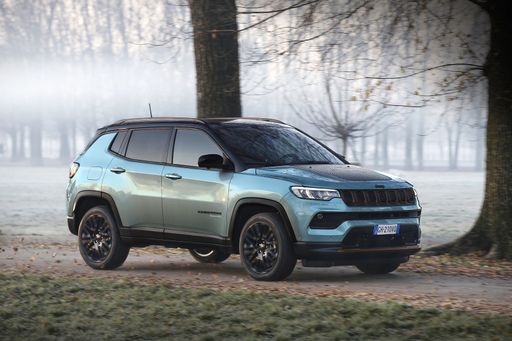 @ media.stellantis.com
@ media.stellantis.com
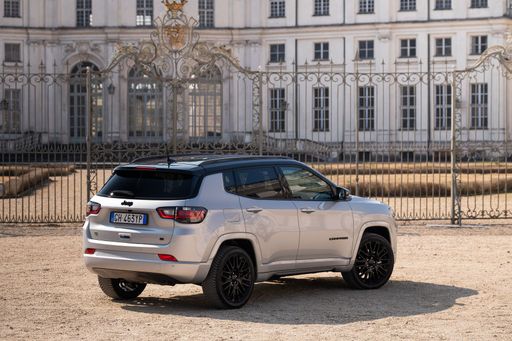 @ media.stellantis.com
@ media.stellantis.com
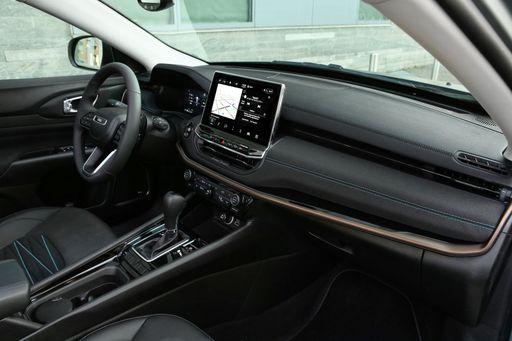 @ media.stellantis.com
@ media.stellantis.com
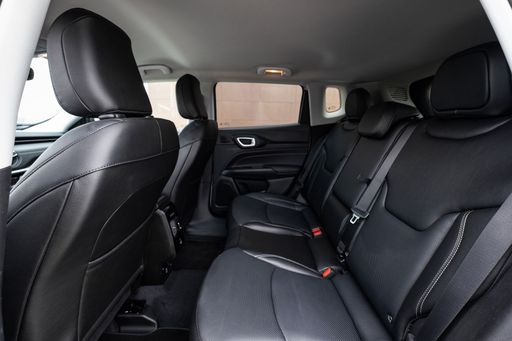 @ media.stellantis.com
@ media.stellantis.com
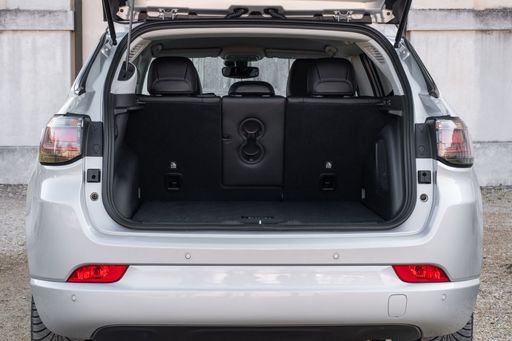 @ media.stellantis.com
@ media.stellantis.com
VW ID.3
The VW ID.3 represents Volkswagen's entry into the world of electric vehicles, offering a modern design that combines functionality with sustainability. Inside, you'll find a spacious and tech-forward interior, providing a comfortable driving experience while maintaining a focus on environmentally friendly materials. The ID.3's performance delivers a smooth and responsive feel on the road, making it a strong contender in the growing electric car market.
details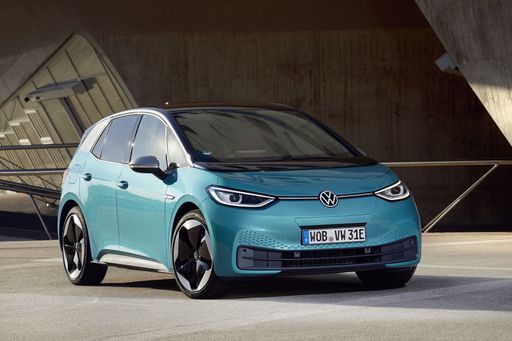 @ Volkswagen
@ Volkswagen
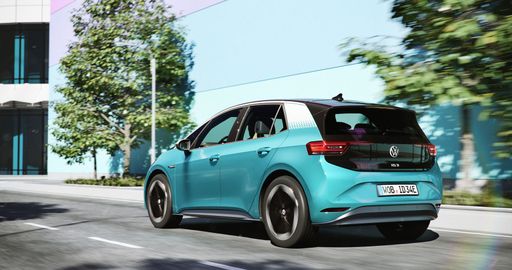 @ Volkswagen
@ Volkswagen
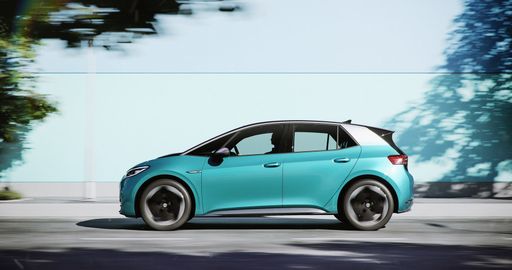 @ Volkswagen
@ Volkswagen
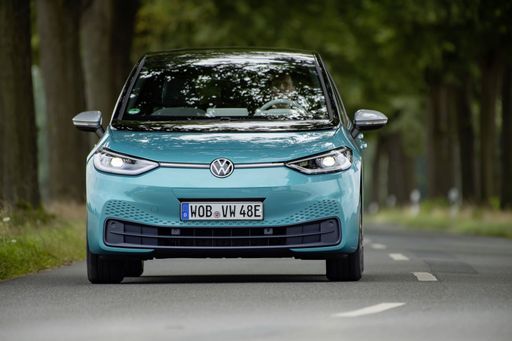 @ Volkswagen
@ Volkswagen
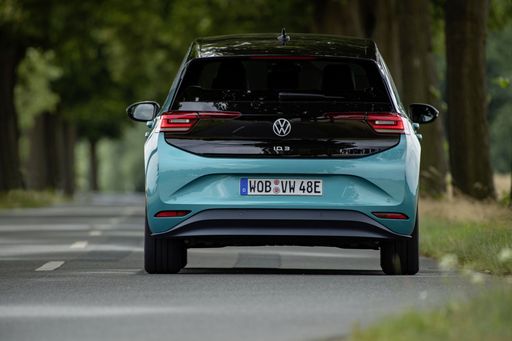 @ Volkswagen
@ Volkswagen
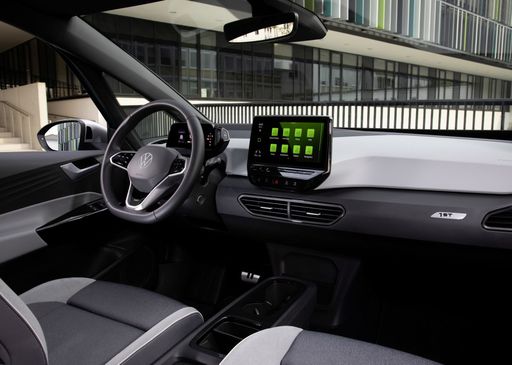 @ Volkswagen
@ Volkswagen
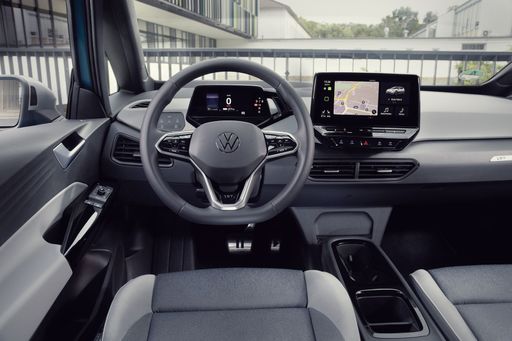 @ Volkswagen
@ Volkswagen

|

|
|
|
|
Costs and Consumption |
|
|---|---|
|
Price
34200 - 46900 £
|
Price
28600 - 49300 £
|
|
Consumption L/100km
2 - 5.9 L
|
Consumption L/100km
-
|
|
Consumption kWh/100km
17.50 kWh
|
Consumption kWh/100km
14.5 - 15.8 kWh
|
|
Electric Range
36 - 500 km
|
Electric Range
383 - 606 km
|
|
Battery Capacity
74 kWh
|
Battery Capacity
52 - 79 kWh
|
|
co2
0 - 133 g/km
|
co2
0 g/km
|
|
Fuel tank capacity
36 - 55 L
|
Fuel tank capacity
-
|
Dimensions and Body |
|
|---|---|
|
Body Type
SUV
|
Body Type
Hatchback
|
|
Seats
5
|
Seats
5
|
|
Doors
5
|
Doors
5
|
|
Curb weight
1575 - 2198 kg
|
Curb weight
1787 - 2000 kg
|
|
Trunk capacity
420 - 550 L
|
Trunk capacity
385 L
|
|
Length
4404 - 4552 mm
|
Length
4264 mm
|
|
Width
1819 mm
|
Width
1809 mm
|
|
Height
1629 - 1675 mm
|
Height
1564 mm
|
|
Payload
465 - 470 kg
|
Payload
430 - 473 kg
|
Engine and Performance |
|
|---|---|
|
Engine Type
Petrol MHEV, Plugin Hybrid, Electric
|
Engine Type
Electric
|
|
Transmission
Automatic
|
Transmission
Automatic
|
|
Transmission Detail
Dual-Clutch Automatic, Automatic Gearbox, Reduction Gearbox
|
Transmission Detail
Reduction Gearbox
|
|
Drive Type
Front-Wheel Drive, All-Wheel Drive
|
Drive Type
Rear-Wheel Drive
|
|
Power HP
130 - 240 HP
|
Power HP
170 - 326 HP
|
|
Acceleration 0-100km/h
7.3 - 10.3 s
|
Acceleration 0-100km/h
5.7 - 8.2 s
|
|
Max Speed
180 - 200 km/h
|
Max Speed
160 - 200 km/h
|
|
Torque
230 - 345 Nm
|
Torque
310 - 545 Nm
|
|
Number of Cylinders
4
|
Number of Cylinders
-
|
|
Power kW
96 - 177 kW
|
Power kW
125 - 240 kW
|
|
Engine capacity
1199 - 1469 cm3
|
Engine capacity
-
|
General |
|
|---|---|
|
Model Year
2024 - 2025
|
Model Year
2024 - 2025
|
|
CO2 Efficiency Class
D, B, A
|
CO2 Efficiency Class
A
|
|
Brand
Jeep
|
Brand
VW
|
Jeep Compass
Exploring the Jeep Compass: A Modern SUV with Innovative Features
The Jeep Compass continues to challenge the boundaries of what an SUV can be, offering a blend of practicality, efficiency, and rugged appeal. This model, distinguished by its diverse range of powertrains, promises to cater to various needs and preferences. From urban commuting to exploring off-road trails, the Compass delivers with aplomb.
Engine Versatility and Performance
Under the bonnet, the Jeep Compass offers a diverse lineup of engines designed to meet varying driver demands. With options ranging from mild hybrid petrol engines to advanced Plug-in Hybrid Electric Vehicles (PHEVs), the Compass provides both efficiency and power. This impressive engine choice results in power outputs from 130 to 240 PS, ensuring that there is a model suitable for both city driving and more ambitious off-road excursions.
Performance devotees will appreciate the Compass's quick acceleration, clocking 0-100 km/h in as little as 7.3 seconds. Meanwhile, fuel economy remains commendable, with consumption figures between 1.7 to 5.5 litres per 100 kilometres, making the Compass an economical choice for daily driving.
Innovative Hybrid Technology
The Jeep Compass brings cutting-edge hybrid technology to the forefront. The available plug-in hybrid variants offer electric-only driving ranges of up to 53 kilometres, ideal for environmentally conscious urban drivers. This zero-emission capability makes short trips sustainable without compromising on the flexibility offered by the internal combustion engine for longer journeys.
Dynamic Drivetrain Options
One of the main talking points of the Compass is its adaptable drivetrain options, which include both front-wheel drive and all-wheel drive systems. The 4xe PHEV models particularly stand out with their all-wheel drive, providing enhanced stability and traction suitable for varying terrains. Additionally, the automated transmission ensures smooth gear changes and an overall comfortable driving experience.
Design and Comfort
Beyond performance, the Jeep Compass excels in providing a stylish and functional environment. The SUV's dimensions, ranging between 4398 to 4404 mm in length and up to 1874 mm in width, offer ample interior space for both passengers and cargo. The boot space varies from 420 to 438 litres, accommodating the needs of families and adventure-seekers alike.
With seating for five, maximum comfort is assured, thanks to high-quality materials and thoughtfully designed interiors. The Compass integrates advanced technology seamlessly into its cabin, ensuring easy connectivity and an engaging driving experience.
Safety and Efficiency
Safety is paramount in the Jeep Compass, with a range of driver assistance features providing peace of mind. The model adheres to impressive CO2 efficiency standards, boasting a CO2 emission range between 37 and 123 g/km, making it both a responsible and reliable choice.
Furthermore, the Compass offers competitive running costs, with monthly expenses ranging from €1,095 to €1,315, and an average cost per kilometre between 43.8 and 52.6 cents. This cost-effectiveness further underscores the Compass’s value proposition.
Conclusion
Overall, the Jeep Compass stands out as a richly equipped, versatile SUV, ready to tackle urban or off-road challenges. With its blend of powertrain innovations, superior performance, and sophisticated design, it redefines what’s possible in the SUV segment. Whether for efficient city driving or adventurous journeys into the unknown, the Compass is ready to rise to the occasion.
VW ID.3
Introducing the VW ID.3: A New Age of Electric Driving
In the ever-evolving world of electric vehicles, Volkswagen stands as a beacon of innovation and sustainability. The VW ID.3 is the marque’s answer to a cleaner future, presenting a stylish and practical hatchback that captivates the eco-conscious yet demanding motorist. With variations that cater to diverse preferences, the ID.3 sets a new standard in the electric vehicle segment.
Performance & Efficiency: Pure Electric Power
The VW ID.3 offers a dynamic blend of performance and efficiency with power ranging from 170 to 326 PS. This is translated into on-road finesse by its automatic gearbox and rear-wheel drive configuration. Drivers can expect an impressive range between 383 to 604 km on a single charge, thanks to the vehicle’s efficient energy consumption which sits between 14.5 to 15.8 kWh/100km. Catering to various driving styles, it delivers acceleration from 0 to 100 km/h in just 5.7 to 8.2 seconds, all while maintaining zero emissions on the road.
Innovative Technology: Beyond the Basics
Volkswagen has embedded advanced technological features into the ID.3 to enhance user experience. The vehicle boasts a reduction gearbox designed for peak efficiency and seamless driving. It also comes equipped with the latest infotainment systems, a digital cockpit and safety features that elevate both convenience and security to new heights.
Design & Comfort: Spacious and Sleek
With a length of 4264 mm and a width of 1809 mm, the VW ID.3 comfortably accommodates five passengers while offering a generous 385-litre boot capacity. The sleek, streamlined silhouette is complemented by a spacious interior design prioritizing both comfort and sophistication. Crafted for the modern driver, the ID.3 offers features like adaptive ambient lighting and adjustable seating, ensuring a journey as pleasant as the destination.
Environmental Impact: Driving Towards Zero Emissions
Aligned with the target of reducing carbon footprints, the ID.3 performs strongly with a CO2 emission rating of 0 g/km, holding a proud A-class CO2 efficiency rating. By embracing sustainable materials and methods, Volkswagen reduces the life-cycle emissions of the ID.3, making it a hallmark of eco-friendly vehicle innovation.
The Verdict: A Smart Choice
The VW ID.3 represents a critical step forward in the era of electric mobility. With an enticing price range of €36,900 to €52,295, it offers a balance between value, sustainability, and tech-laden driving experience. Whether for city errands or long journeys, the VW ID.3 stands out with its commitment to innovation and environmental stewardship, making it an exemplary choice for today's discerning driver.
Which drive types are available for the Jeep Compass?
Available as Front-Wheel Drive or All-Wheel Drive.
The prices and data displayed are estimates based on German list prices and may vary by country. This information is not legally binding.
